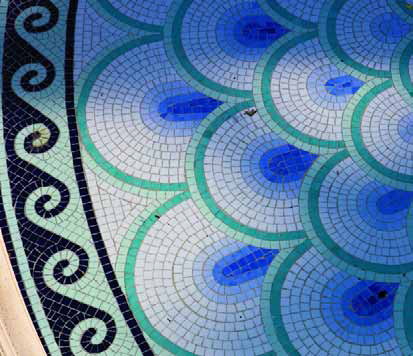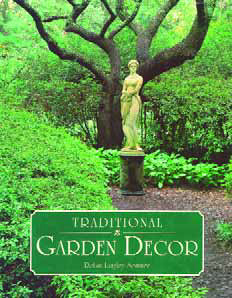details
What do you see when you look at postcards, ads and travel posters designed to lure you to exotic, sunny locations? Almost without exception, there are palms - the omnipresent invitation to experience all things tropical. The association is so close, in fact, that it's hard to imagine a tropical resort or lagoon-style backyard pool without at least one of them in sight. The allure of palms, of course, extends well beyond the tropics. In any location in which sunshine and outdoor living are touchstones for the good life, whether its in the desert of southern California or on a waterfront in Hawaii, palms are almost always the finishing touch used in crafting a distinctive artistic and cultural statement. They are the icons of
What do you see when you look at postcards, ads and travel posters designed to lure you to exotic, sunny locations? Almost without exception, there are palms - the omnipresent invitation to experience all things tropical. The association is so close, in fact, that it's hard to imagine a tropical resort or lagoon-style backyard pool without at least one of them in sight. The allure of palms, of course, extends well beyond the tropics. In any location in which sunshine and outdoor living are touchstones for the good life, whether its in the desert of southern California or on a waterfront in Hawaii, palms are almost always the finishing touch used in crafting a distinctive artistic and cultural statement. They are the icons of
Not long ago, I was asked by a reporter from The New York Times to define the main difference between swimming pools now compared to what they were 20 years ago. As we talked, it became clear that she was mostly thinking about technological breakthroughs in pumps and chemical treatments and the like. I confirmed for her that, yes, those products had come a long way. But I wouldn't let her stop there, suggesting that there was much more than a run of technical advancements behind the explosion of interest in watershapes in the recent decades. What we've also been seeing, I said, is a latter-day Renaissance of interest in classical notions of
Not long ago, I was asked by a reporter from The New York Times to define the main difference between swimming pools now compared to what they were 20 years ago. As we talked, it became clear that she was mostly thinking about technological breakthroughs in pumps and chemical treatments and the like. I confirmed for her that, yes, those products had come a long way. But I wouldn't let her stop there, suggesting that there was much more than a run of technical advancements behind the explosion of interest in watershapes in the recent decades. What we've also been seeing, I said, is a latter-day Renaissance of interest in classical notions of
I do much of my work in the residential market, and it's increasingly common for my clients to have relatively small yards for which they want something both unique and special. In those settings (and in larger ones as well, but often not as critically), I've found that it's the small touches that make the most difference. Frequently, it's these simple decorative elements that transform designs into unique compositions that reflect clients' personalities and gives their homes that special feeling. Yes, you can create terrific swimming pools and other watershapes and include wonderful hardscape or shade structures and landscaping in any project, but especially in compact spaces, the character of those elements may not be fully expressed or realized until you add these finishing touches. I recently found a wonderful book that shows
I do much of my work in the residential market, and it's increasingly common for my clients to have relatively small yards for which they want something both unique and special. In those settings (and in larger ones as well, but often not as critically), I've found that it's the small touches that make the most difference. Frequently, it's these simple decorative elements that transform designs into unique compositions that reflect clients' personalities and gives their homes that special feeling. Yes, you can create terrific swimming pools and other watershapes and include wonderful hardscape or shade structures and landscaping in any project, but especially in compact spaces, the character of those elements may not be fully expressed or realized until you add these finishing touches. I recently found a wonderful book that shows
In the parlance of those who know best, it's time to discuss "mud" - the concrete material out of which most watershape shells are made. Mud enters the scene after the steel, plumbing, electrical conduits and forms have been placed and, in some jurisdictions, all work to that point has passed careful inspection. The concrete itself can take any of four forms: concrete block or poured-in-place concrete (neither of which is used very often), or gunite or shotcrete (far more commonly used). In my three decades of building watershapes, I've worked with all of these materials. If a very specific set of circumstances calls for the use of
In the parlance of those who know best, it's time to discuss "mud" - the concrete material out of which most watershape shells are made. Mud enters the scene after the steel, plumbing, electrical conduits and forms have been placed and, in some jurisdictions, all work to that point has passed careful inspection. The concrete itself can take any of four forms: concrete block or poured-in-place concrete (neither of which is used very often), or gunite or shotcrete (far more commonly used). In my three decades of building watershapes, I've worked with all of these materials. If a very specific set of circumstances calls for the use of

















